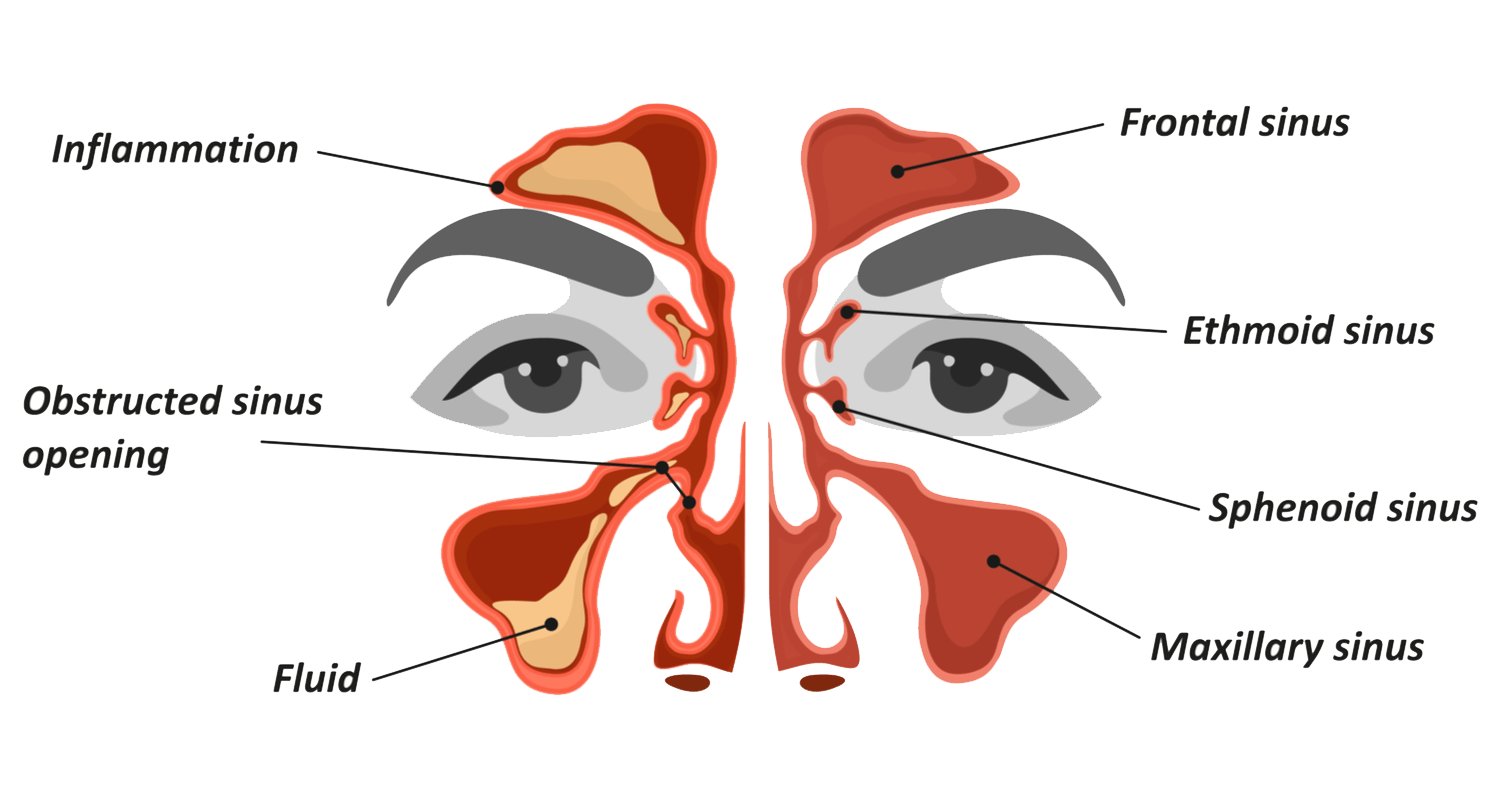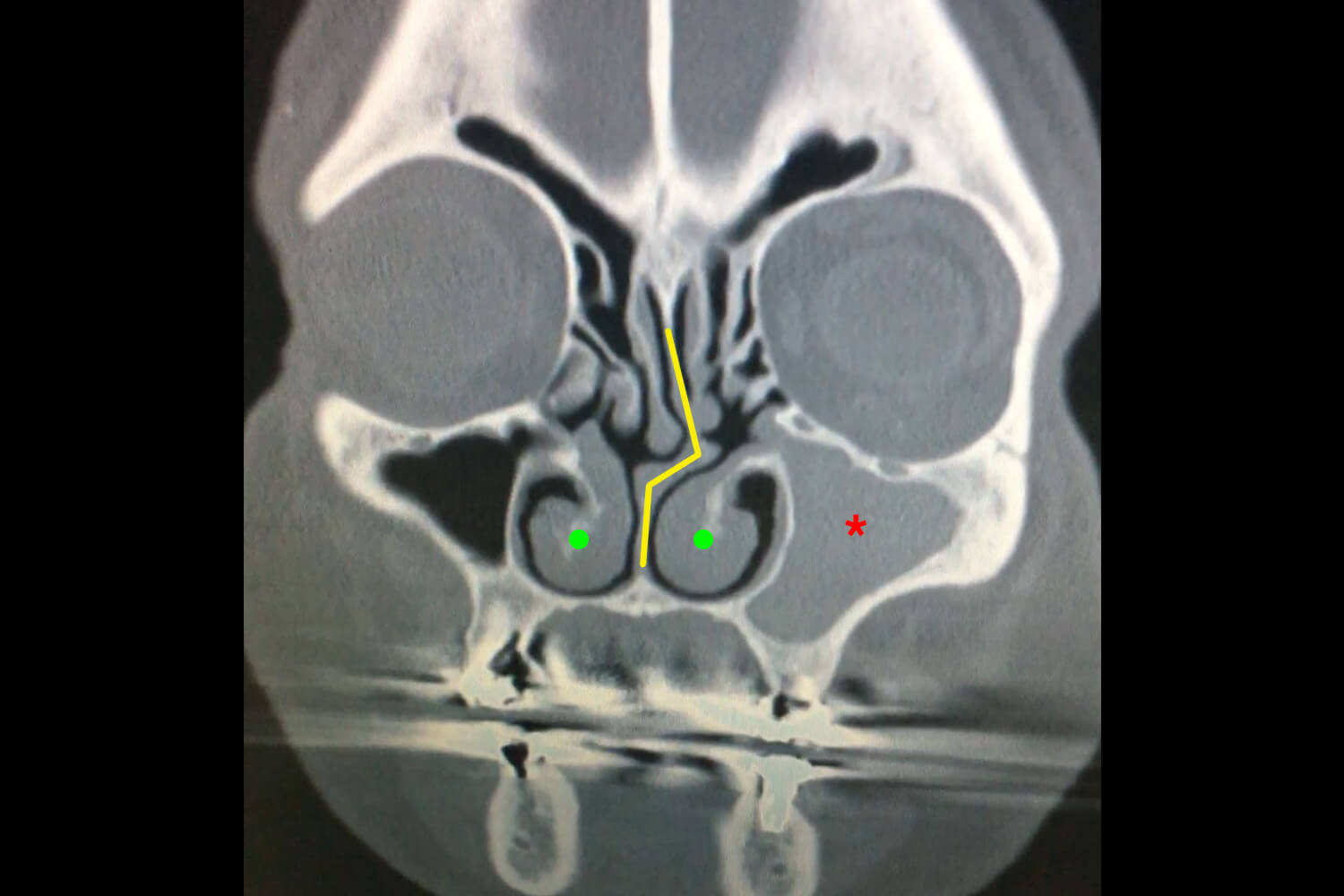What is sinusitis?
The sinuses are air filled spaces that surround and connect to your nasal passages. There are 4 pairs of sinuses within the skull: the maxillary (cheek) sinuses, the frontal (forehead) sinuses, the ethmoid (between the eyes) sinuses, and the sphenoid sinuses. Sinusitis occurs when one of these spaces becomes infected.
![sinuses-anatomy-sinusitis]()
What are the symptoms of sinusitis?
- Nasal congestion
- Thick nasal discharge (yellow or green colored)
- Loss of smell
- Facial pain/pressure
- Cough (particularly when lying down)
- Fever
- Fatigue/malaise
What are the causes for sinusitis?
Many different disease processes can produce nasal obstruction, nasal drainage, and facial pressure. Therefore, understanding the underlying cause will determine treatment.
Categorizing Sinusitis
Sinusitis is described by its length of infection as well as the type of germ that causes the infection (bacterial or fungal).
ACUTE SINUSITIS
Acute sinusitis is described as a sinus infection that lasts for under 4 weeks and is due to a virus in approximately 98% - 99.5% of cases. Therefore, acute sinusitis is usually self limiting and requires no prescribed medications. Over the counter medications like decongestants and saline irrigations usually suffice to help alleviate your symptoms as your body fights the infection. However, there are instances when a viral infection becomes prolonged and results in a bacterial infection. This will typically necessitate prescribed medication. Three important reasons to be placed on antibiotics is when (1) If the infection lasts for over 7-10 days without improvement, (2) you have a fever (100.4 F or 38 C) that lasts for at least 2-3 days, or (3) if your symptoms worsen begins to get worse after initially getting better.
CHRONIC SINUSITIS
Chronic sinusitis is described as having a sinus infection for over 12 weeks, and is usually a result of chronic inflammation. In this type of sinusitis, the cycle begins with an initial sinus infection that causes irreparable damage to the lining of the nose and disrupts its normal functioning. The nose then has difficulty creating a healthy environment and infections can persist, further worsening the sinusitis. Therefore, it is important to understand that the underlying cause of chronic sinusitis is actually inflammatory, not infectious (i.e., directly from a virus or bacteria). As such, antibiotics are no longer be effective at this point and treatment is geared toward reestablishing a healthy environment in the nose. Occasionally, the chronic sinusitis will be so severe that the lining of the nose produces polyps as response. Nasal polyps are benign growths that can further worsen symptoms.
OTHER TYPES OF SINUSITIS
Not all sinusitis is the same, and for this reason, it is important to be evaluated by a specialist to determine the true underlying causes. The following is a list of risk factors and other disease processes that can cause distinct types of sinusitis:
How do you treat sinusitis?
Since there are various causes for sinusitis, identifying the underlying cause will determine the appropriate treatment strategy. In many cases, routine cleaning of the nose with saline rinses and using topical nasal sprays will be cornerstone of treating chronic sinus disease. In other cases, endoscopic sinus sinus surgery will also be required to provide definitive care.




